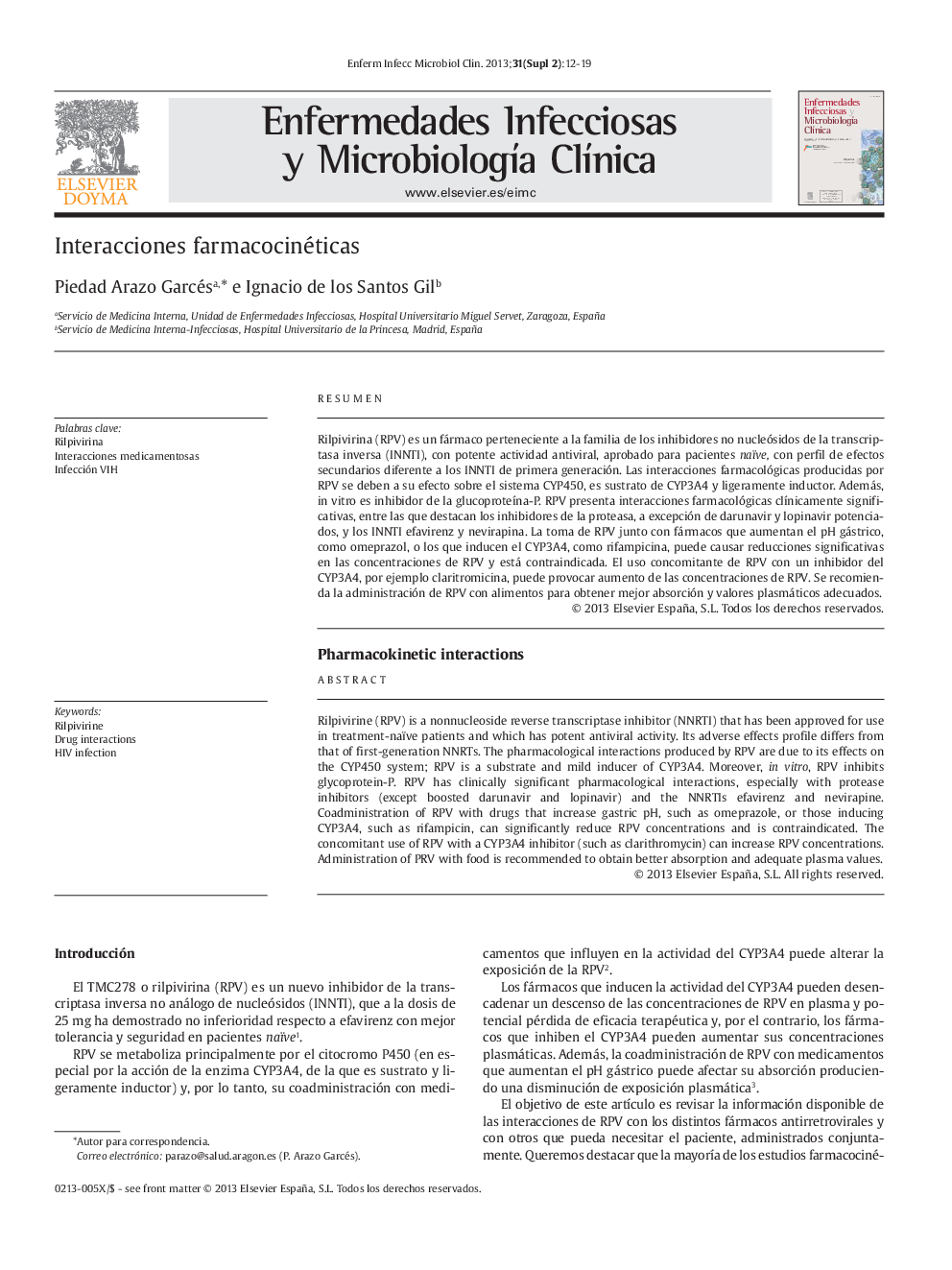| Article ID | Journal | Published Year | Pages | File Type |
|---|---|---|---|---|
| 3401383 | Enfermedades Infecciosas y Microbiología Clínica | 2013 | 8 Pages |
Abstract
Rilpivirine (RPV) is a nonnucleoside reverse transcriptase inhibitor (NNRTI) that has been approved for use in treatment-naïve patients and which has potent antiviral activity. Its adverse effects profile differs from that of first-generation NNRTs. The pharmacological interactions produced by RPV are due to its effects on the CYP450 system; RPV is a substrate and mild inducer of CYP3A4. Moreover, in vitro, RPV inhibits glycoprotein-P. RPV has clinically significant pharmacological interactions, especially with protease inhibitors (except boosted darunavir and lopinavir) and the NNRTIs efavirenz and nevirapine. Coadministration of RPV with drugs that increase gastric pH, such as omeprazole, or those inducing CYP3A4, such as rifampicin, can significantly reduce RPV concentrations and is contraindicated. The concomitant use of RPV with a CYP3A4 inhibitor (such as clarithromycin) can increase RPV concentrations. Administration of PRV with food is recommended to obtain better absorption and adequate plasma values.
Related Topics
Life Sciences
Immunology and Microbiology
Microbiology
Authors
Piedad Arazo Garcés, Ignacio de los Santos Gil,
